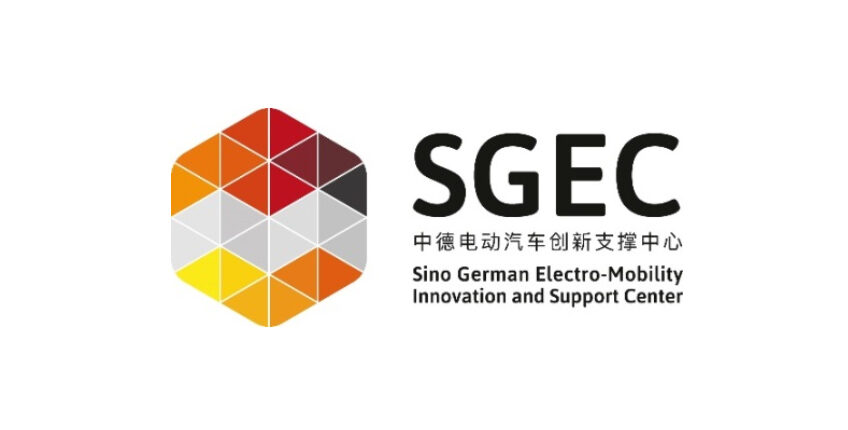As of immediately, project outlines for German-Chinese research and development cooperation projects in the field of hydrogen and fuel cell vehicles can be submitted. The virtual “Sino German Electro Mobility Innovation and Support Center (SGEC)” unites and coordinates the activities and projects of German-Chinese cooperation on electric mobility with both battery and hydrogen fuel cell technology.
Project outlines for German-Chinese research and development cooperation projects in the field of hydrogen and fuel cell vehicles can now be submitted to the National Innovation Programme Hydrogen and Fuel Cell Technology (NIP) until 30 November 2021.
The Federal Ministry of Transport and Digital Infrastructure (BMVI – Bundesministerium für Verkehr und Digitale Infrastruktur) and the Ministry of Science and Technology (MoST) of the People’s Republic of China provide political support for the SGEC’s projects. In doing so, it advocates intensive cooperation with China, supra-regional scientific exchange and the implementation of demonstration projects that are close to the market. The aim of the projects funded within the scope of the SGEC is to support the market ramp-up of both battery-powered vehicles and vehicles equipped with hydrogen fuel cells. The focus is not least on the mutual exchange of experience, from which both sides can benefit.
The current call relates exclusively to cooperative projects in the field of hydrogen and fuel cell vehicles and places the following requirements on applicants: The projects must demonstrate a clear bilateral relationship between Germany and China with added value for both countries. Furthermore, a clear character of research and development projects must be recognisable.
Different areas of emphasis for the cooperation projects
The BMVI particularly welcomes cooperative projects that address one of the following key topics:
-
- First topic: Research on key technologies for hydrogen-powered fuel cell vehicles
- Assessment of normal safety risks (standing, driving) in largely open areas such as garages, tunnels, ferries, but also enclosed spaces
- Modelling of safety risks related to the fuel cell, on-board hydrogen fuel tanks and the interface with hydrogen refuelling stations (HRS), including operational aspects.
- Second topic: Research on the infrastructure of hydrogen-powered fuel cell vehicles
- Management specifications for highly efficient infrastructure operation – e.g. approaches for HRS refuelling protocols for commercial vehicles and associated acceptance processes
- Optimised integration of hydrogen pressure systems in refuelling stations
- Online hydrogen quality testing technology to enable hydrogen quality verification along the entire supply chain
- Multimodal HRS infrastructure: synergy effects of sharing facilities between different modes of transport
- Rapid refuelling and discharge of large quantities of hydrogen in transport along the supply chain
- Third topic: Reduction potential of carbon (dioxide) emissions by hydrogen-powered fuel cell vehicles
- Models/approaches for testing the reduction potential of carbon (dioxide) emissions from hydrogen-powered fuel cell vehicles along the fuel supply chai
- First topic: Research on key technologies for hydrogen-powered fuel cell vehicles
Funding guidelines and documents
On the German side, the NIP II funding guidelines apply: NIP-II-Foerderrichtlinie-FEI-2021.pdf (in German)
Applications for funding/project outlines can be submitted as of now:: Skizzenvorlage F&E&I (docx). The submission deadline for the SGEC is 30 November 2021.
For the German side, Jaqueline Ives, Programme Manager Asia NOW GmbH, is the responsible person. On the Chinese side, LIN Xiyan is the contact person.
About the Sino-German Electro-Mobility Innovation and Support Center (SGEC)
The virtual centre Sino-German Electro-Mobility Innovation and Support Center (SGEC) was established on the basis of the joint declaration on cooperation in the field of electric mobility with batteries as well as hydrogen and fuel cells between the German Federal Ministry of Transport and Digital Infrastructure (BMVI) as well as the Chinese MOST and the declaration of cooperation between the China Automotive Technology and Research Center (CATARC) and NOW. In the SGEC, German-Chinese cooperation projects from the fields of battery-electric mobility, electric mobility with hydrogen fuel cells, safety (battery and hydrogen) and integration of renewable energies take place to promote scientific exchange and the development of partnerships.


